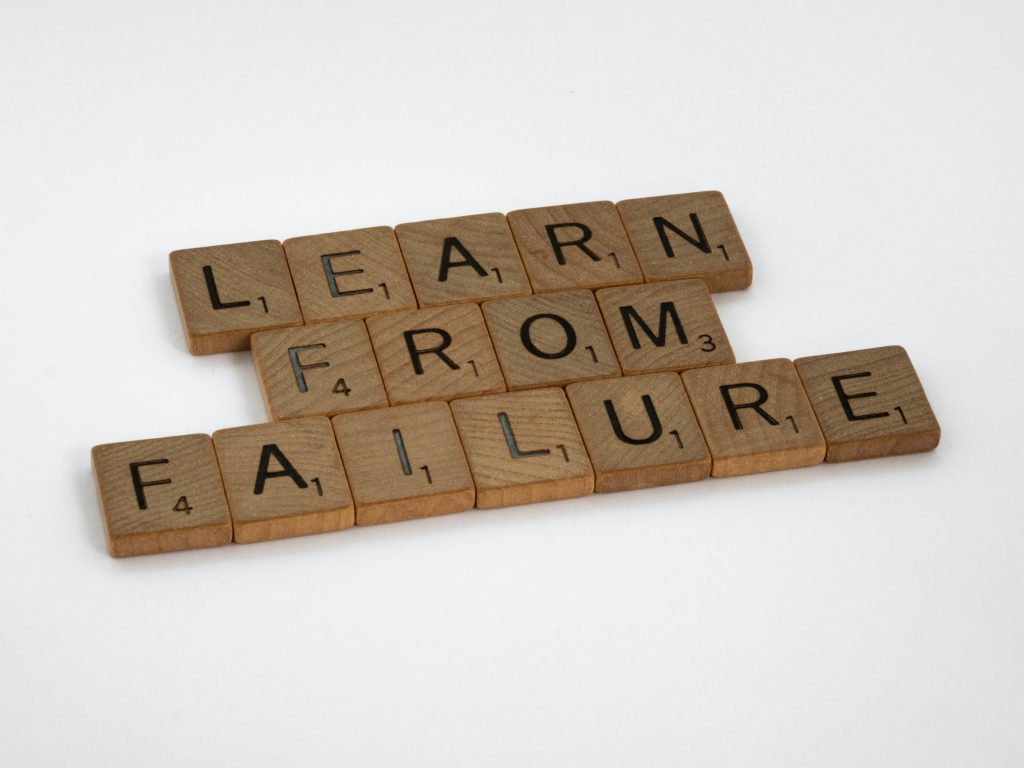How to deal with common fears in recovery
When we were drinking or chasing any other high during our active addiction, fears were an intrinsic part of our lives. We feared the future, were scared of getting caught, of people finding our true nature, fear of death or just unknown fears. Of course, we dealt with these fears with chemicals or compulsive behaviours.
When we get into recovery, some of these fears linger on. While our growing faith in a “Higher Power” may help us deal with some of them, some fears need to be addressed by us proactively. Let us look at some of the most common of these and how to deal with them.

Fear of failure
When we look back at our behaviours before recovery, we might discover we were not motivated by a desire for success but rather by fear of failure. When fear of failure is added to unreasonably high expectations, it can make us reject risks, paralyze us in the middle of a new venture, or lead us to pour our energies into avoiding failure rather than succeeding. All these fears rob us of the joy of achievement. Fear of failure or appearing to be a failure can haunt us well into recovery. It may even block us in our recovery program, for example, by a fear of giving a talk when we are asked.
Fear of failure may prove healthy if it keeps us from taking undue risks or undertaking ventures we are unsuited for or when we get tempted into a situation triggered by our grandiosity. Not wanting to see an undertaking or task fail is a normal and healthy reaction and may motivate us to work harder.
When do we know our fear of failure is realistic and healthy? When is unhealthy fear blocking our growth and dominating our lives? One way of finding out if our fears are natural or harmful is to share them honestly with someone, like our sponsor or therapist. If we hear ourselves saying, “I don’t want to talk about it,” it is most likely that our fears are unhealthy.
Willingness to discuss our fears honestly with another person gives us good insight and maybe a solution. We may frequently be the victims of false fears which will melt away in the face of our honesty. We may discover that our fears are normal and shared by other people.
Of course, the final decision, whether to listen to a particular fear or not, is our own. A person trying to decide whether or not to return to school discovers a great deal of fear surrounding that decision. When we share this with others, we may find that this is a common fear amongst students. Sharing fears lessen its power over us. It gives us enough strength to make decisions even if the fear lingers. Knowing we are not alone and that we are not the first to go through such an experience gives us strength.
Good things can happen as we develop the ability to share our fear of failure with other people. We have a firmer foundation for making sensible decisions. We become able to listen to our fears and respond to them rather than react (or get paralyzed), and we are lesser risk of being overwhelmed by the fear.

Fear of rejection
Another major fear experienced in recovery is the fear of rejection. This is a normal fear and may crop up when we are least prepared. It can loom us as a significant roadblock to the fullness of life. It is a difficult fear to deal with, but not impossible.
In extreme forms, fear of rejection may make us overly aggressive or possessive in our relationships. As an extension of the fight syndrome, it may lead us to keep others away by constantly battling with them and not allowing them to reject us. And as an extension of the flight syndrome, we may avoid letting people get close to us to because we fear they won’t like us if they know who we actually are. The fear of rejection may make us indulge in “people pleasing.” We might do things we would instead not do.
There is no simple way to deal with the fear of rejection. Most of us learn to handle it the hard way – by being rejected and realizing we can survive! We become aware that this fear is more painful than the actual rejection. If we let ourselves be overwhelmed by the fear of rejection, we reject ourselves, which is more dreadful than having someone else not accept us.
Again, sharing our fear with others can lessen this fear and allow us to take a chance and grow in healthy ways.
How to deal with our fears
Perhaps the best advice regarding our fears comes from the Big Book of Alcoholics Anonymous: “We reviewed our fears thoroughly. We put them on paper, even though we had no resentment in connection with them.” Fear is a part of our inventory regularly because fears may be a source of self-pity, resentment and dishonesty.
The fear of not getting what we want, losing something we have, or not looking good are usual fears and do not disappear simply because we no longer indulge in compulsive behaviours. They can enter our lives subtly, without warning.
Sharing our fears is an effective and practical way of identifying them and dealing with them. Unattended and unshared fear will grow and become a significant problem.
The regular practice of prayer and meditation is another way of becoming free from our fears. The Big Book recommends the practice of short prayers during stressful times which ask for guidance and indicate a willingness to let go. Many recovering persons find that saying the Serenity Prayer can alleviate a momentary fear.
Responses to fear
In recovery, we are not seeking to be free from the capacity for fear but rather to become free from fear which overwhelms our lives or interferes with our personal growth. When we become aware of fear and face it, we have more freedom of choice in responding to it, but this requires courage.
Courage may be exhibited by our willingness to take a small step in the face of fear rather than an overwhelming big step we cannot take. Our willingness and courage to take a risk in the face of fear is no small matter. Sharing our achievements can provide us with the foundation for further steps and encourage those around us. Acknowledging the progress, we have made in becoming free from the fear that dominated our lives is a source of gratitude and courage and faith in facing present and upcoming fears.
If you or a loved one is struggling with addiction, call Freephone 0800 140 4044
Freephone: 0800 140 4044
Local rate: 0300 330 3040

